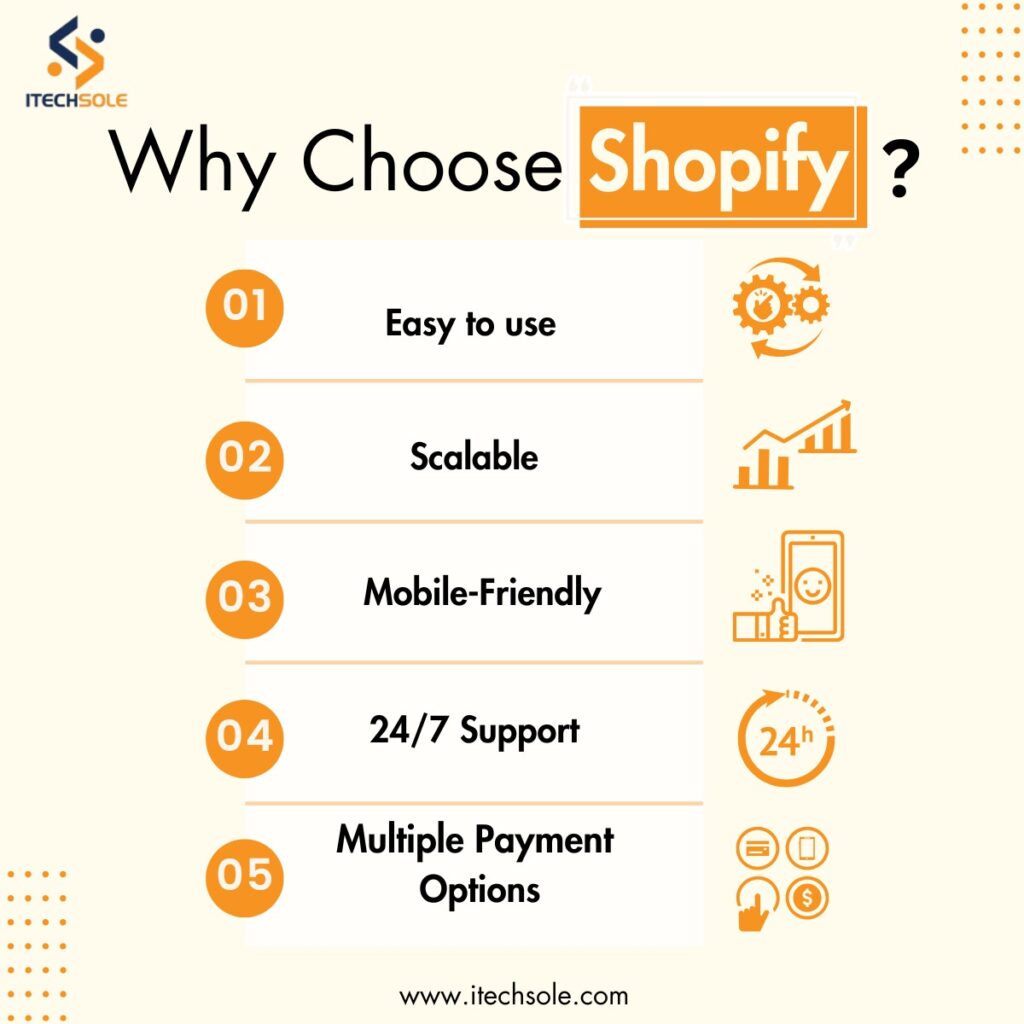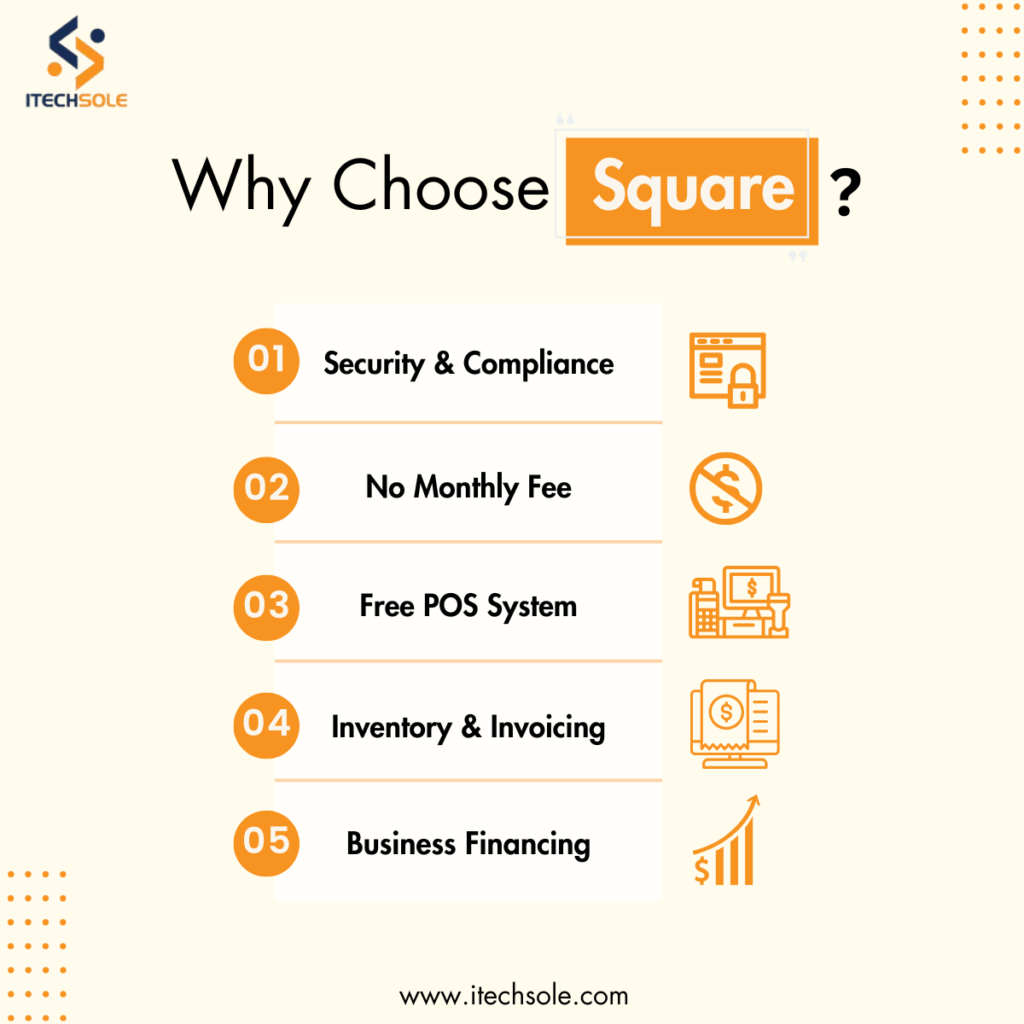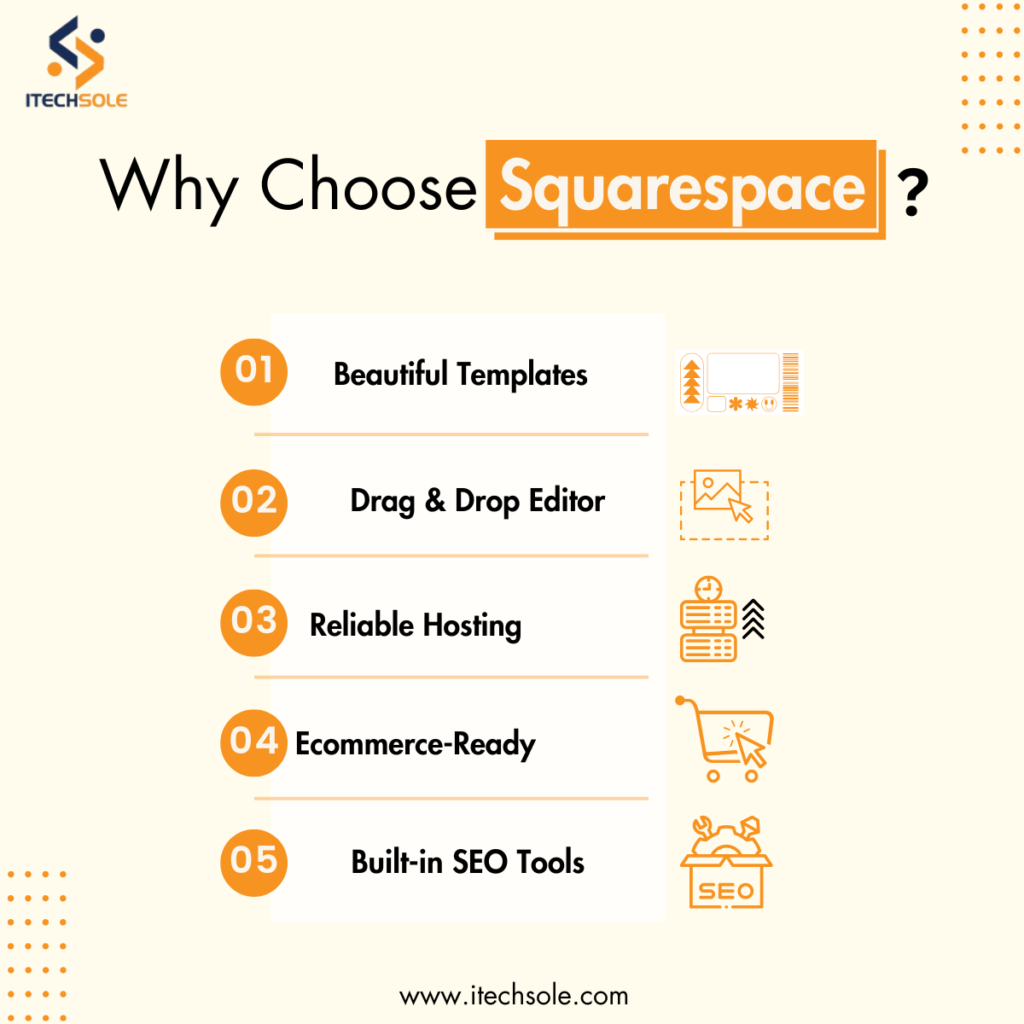Are you running your own small business and aspire to step into the online world? That’s a great decision, and we understand how you are probably in search of a fitting ecommerce platform. The truth is there are plenty of e-commerce platforms available online, and that can be quite overwhelming. This is why we decided to delve into the matter and help you find the best ecommerce platform for small business. We have created this detailed guide for you to analyze different powerful ecommerce platforms for small businesses.
In the guide, we will discuss 5 top platforms and compare their features, functionality, and pricing. By the time you finish this read, you will be in a position to decide on the best e-commerce platform for your small business.
Here are the different things you will learn today:
- Key features you must consider when choosing an e-commerce platform
- Comprehensive reviews of the 5 best e-commerce platforms for small businesses
Are you ready to revolutionize your small biz by leveraging ecommerce platforms? Let’s get started then.
Table of Contents
Things You Should Look for in Ecommerce Platforms for Small Businesses
Prior to diving into the 5 best ecommerce platforms for small businesses, let’s talk about the key features of good ecommerce platforms. There are certain tools and features that are essential in an ecommerce platform, particularly when you intend to use it for your small business. It is crucial for you to know those features and stay on the lookout for those when picking a platform for your business.
1.User-Friendly Navigation
Being a small business owner comes with many responsibilities and limitations. Often, you need to wear multiple hats and take care of many tasks. That’s mainly because you either have a small team, or are managing most things on your own. This is why your ecommerce platform must be intuitive and easy to use.
Make sure to look for the following features in the ecommerce platform you’re considering using for your business.
- User-friendly interfaces
- Simple setup process
- Drag-and-drop builders
- Quick and easy integration with third-party apps and tools
- Seamless content management system (CMS)
- Straightforward product management systems
Many platforms offer a 7-day trial period. If possible, opt for the trial period and try to excessively use the platform during that period. Frequently using the potential ecommerce platform will help you evaluate these features, and assess its ease of use.
2. Cost-Effectiveness
Typically, budget is a major concern for most small business owners. Setting up a biz doesn’t just come with the initial set-up costs. There are ongoing running and maintenance expenses too. When you decide to opt for an ecommerce platform for your business, do consider its price and fees involved.
You need an affordable and functional platform—one that works efficiently, but doesn’t cost you an arm and a leg. Take a look at the different factors you should evaluate to ensure you choose an affordable platform.
- Monthly subscription fees
- Payment gateway costs
- Transaction charges
- Scaling costs for the future
- Development and design expenses
- Extension and/ or app fees.
Many ecommerce platforms nowadays offer free trials or plans. Others have different tiered pricing models according to their sales volume or features. Don’t forget to calculate the overall cost of the platform so you can make the right call.3. Customization Flexibility
People love brands with a personality, and those that resonate with them. Your brand must have its own unique personality. What’s equally important is for your online store to reflect that beautifully.
When you are shopping for an ecommerce platform for your small business, seek one that provides the following features:
- Design and layout flexibility
- Option of adding unique, custom code
- Plenty of attractive and customizable themes and templates
- Option of modifying email templates
- Tailored checkout processes
- Customizable product pages
Keep in mind your brand identity, story, goals, and audience so you can then decide on a platform that aligns with these aspects.
4. Payment Gateway
An online store is never complete without a payment gateway, right? Just make certain that the ecommerce platform you choose offers seamless payment gateway integration. Ideally, it should support numerous payment selections to better address your customers’ needs and preferences.
Typically, the best ecommerce platforms for small businesses support the following payment gateways:
- Google Pay
- PayPal
- Square
- Stripe
- Apple Pay
- Amazon Pay
Additionally, check if the platform also allows you to integrate the local payment options used by the local market, such as Afterpay, Klarna, and Sezzle.
5. Ease of Scalability
Even if you are starting from a small scale, wisdom demands you select a scalable platform. The ideal platform should grow as your business scales. Consider the following features in the potential ecommerce platform for your business:
- Multi-channel selling option
- Inventory management
- API access to make custom integrations
- Advanced reporting and analytics
- Mobile responsiveness
- Capacity to manage heavy traffic
- Option to support multiple languages and currencies
If a platform offers these options, it certainly has the ability to grow forward as you expand your business, and is likely to be a good long-term option.
6. Mobile Responsiveness
In 2022, around 79% of those in the US engaged regularly in online shopping. This makes it about 266 million people. According to research on , this figure is likely to increase to 285 million in 2025.
Considering how more people prefer shopping from mobile devices, it is crucial that your e-store is functional on different devices and looks great on them too. This includes mobile phones, tablets, laptops etc.
The key factors to consider are:
- Fast loading times
- Mobile application so you can manage your store when you’re on the go
- Checkout process optimized for smartphones
- Touch-friendly buttons and navigation
- Adaptable responsive design
A good way to take care of these aspects is to engage an expert marketing agency that specializes in ecommerce and digital marketing.
7. SEO Features
SEO is critical for your store’s visibility, both online and offline. Select an ecommerce platform that comes with integrated SEO tools. With this option, you will find it easy to rank your products in the search engine results, primarily those of Google.
Look for features such as:
- Automated XML sitemaps
- Support for Schema markup
- Flexibility to customize URLs
- Custom meta descriptions and titles
- Integration with Search Console and Google Analytics
- Image Alt text
You can consult the SEO and digital marketing experts at ITechSole to find an ecommerce platform for small businesses that works well for SEO too.
Now that you know the features to look for in ecommerce platforms, let’s analyze some of the best ones for small biz owners.
5 Best Ecommerce Platforms for Small Businesses
Choosing the right ecommerce platform for your business is not that hard. But yes, this process does require you to analyze different platforms in detail. As mentioned before, do consider consulting an expert on the subject to make a well-thought-out decision.
Here are 5 of the best ecommerce platforms for small businesses that we absolutely love and recommend to our clients.
1. Shopify: The Ideal Ecommerce Platform

| Pros | Cons |
| User-friendly interface | Certain advanced tools and features demand expensive apps |
| Drag-and-drop store building options | Limited options for customization if you lack coding knowledge |
| 24/7 customer support through live chat, email and phone | Transaction fee between 0.5% and 2.0% according to plan if you don’t use Shopify payments |
| Solid inventory management system | No free plan 🙁 |
| Platform updated regularly | |
| Integrated SEO tools | |
| Built-in analytics | |
| Built-in payment processing via Shopify Payments | |
| Facilitates multi-channel selling |
Shopify Pricing and Plans
The basic Shopify plan costs $29/ month. There is another plan which is an upgrade of the basic one and costs $79/ month. The Shopfify advanced plan is around $299/ month. Shopify also offers an enterpris-egrade plan which starts at $2,000/ month.Real-Time Case Study
The Alaskan King Bed company benefitted massively by switching to Shopify as their ecommerce platform. It was able to experience a huge 43% increment in its sales in the first six months of using Shopify. Alaskan King Bed had a decent store before too, but its visual appeal became even better after shifting to Shopify. Its checkout process became smoother than before, which gradually enabled it to get an edge on its competition. Moreover, the brand leveraged the built-in SEO tools in Shopify. Consequently, their traffic and organic search results began improving. As Shopify offers many integrated marketing tools, the company was successful in starting their social media and email campaigns too. As it is clearly evident from the discussion above, Shopify is a fantastic ecommerce platform for small businesses. Do consider using it to effectively scale your store.2. WooCommerce: A Robust Ecommerce Solution

WooCommerce currently powers more than 6.3 million websites across the globe. Of all the websites, 2.8 million are from the US alone.
These stats clearly exhibit the popularity of WooCommerce. It is undoubtedly a wonderful ecommerce platform that can seamlessly integrate with your current website as well.
Let’s analyze its pros and cons.
| Pros | Cons |
| Free installation (requires WordPress hosting|) | Big learning curve |
| Customization flexibility with plenty of plugins and themes | Costs can go higher if you use premium hosting, plugins and themes |
| Zero transaction fees | Performance optimization, security and hosting aren’t provided by WooCommerce |
| Works great for integrating content marketing | More hands-on effort for enhanced security and updates |
| Gives complete control over hosting environment and data | |
| Huge community to offer development help and support | |
| Smooth integration with WordPress pages and blogs |
The platform is indeed great primarily because of its huge customization capabilities. You get access to tons of free plugins and themes that make it super-easy for you to tailor your e-store. Plus, there are no transaction fees too.
That said, you need to spend a few weeks getting the hang of WooCommerce. While it does have a free plugin, you have to spend on its hosting, adding layers of security, and performance optimization. Consequently, that increases your overall expense, particularly if you opt for any premium theme, plugin or hosting option.
WooCommerce Plans and Fees
You can get the WooCommerce plugin for absolutely free. You will need to get hosting. WordPress hosting generally costs between $5 and $25 per month, but does vary according to the provider.
To get a domain name, be ready to spend around $10 to $15 annually. The SSL certificate is generally given for free, and is offered by most of the hosting providers. As for the premium plugins and themes, they can cost around $200.
Real-Life Case Study
Tonal is a renowned home fitness company. Powered by WooCommerce, the company is doing great in terms of traffic, engagement and sales.
Their WooCommerce store is clean, beautiful, captivating and loads quite fast. Tonal channelizes the customization flexibility offered by WooCommerce to create a methodical checkout process and interactive product pages. Moreover, they have a fantastic blog that is supporting their content marketing and SEO efforts.
If you are someone who enjoys playing with different plugins, and are interested in using content marketing to widen your store’s reach, WooCommerce is a suitable fit for you.
3. Square Online: Integration Expert

| Pros | Cons |
| Free plan | Limited customization features for design |
| User-friendly interface | Fewer shipping options |
| Integration with its POS | Fewer advanced features |
| Automatic syncing of items, orders and inventory across offline and online channels | Transaction fees is applicable even on its free plan |
| Built-in tools for SEO | |
| Commission-free option to sell on Facebook and Instagram |
Square’s Plans and Pricing
The platform does offer a free plan. Its ‘Professional’ plan costs around $12/ month. If your online store gets a good flow of traffic, consider using its ‘Performance’ plan that has a monthly fee of $26. You can also try its ‘Premium’ plan that will cost you about $72 each month.Real-World Case Study
Indigo Wolf is an Australian clothing store, best known for its premium sportswear and leaverswear. They rely on Square Online to align with their brick-and-mortar store. With Square, the brand finds it rather easy to manage their inventory across their offline and online channels. As a result, their customers enjoy a seamless shopping experience. Moreover, Indigo Wolf also benefits from Square’s option of picking up the online orders in their physical store. This option has helped their foot traffic grow to a huge extent.4. BigCommerce: A Scalable Platform

| Pros | Cons |
| No transaction costs | Sales limits on all the plans |
| Powerful SEO tools | Can seem costly to high-volume sellers |
| Option to sell on multiple channels | Steep learning curve involved |
| Excellent API for different custom integrations | Free themes are quite limited |
| Robust B2B features | |
| Limitless bandwidth, products and staff accounts on every plan |
BigCommerce’s Pricing
It doesn’t have a free plan. Its ‘Standard’ plan will cost you around $29.95 per month. The ‘Plus’ option has a basic expense of $79.95/month. For the ‘Pro’ plan, you’ll have to spend around $299.95 each month.Real-Life Example
Ollie is a dog food company based in Reno, Nevada. Specializing in human-grade dog food, the company leverages BigCommerce for their e-store. The brand loves BigCommerce’s scalability as it has enabled them to rapidly grow without the need to change their ecommerce platform. Additionally, the brand makes use of BigCommerce’s API to efficiently integrate with the subscription management system they use. As a result, they can easily offer a variety of personalized meal plans to their customers. Ollie also uses the platform’s features for multi-channel selling that help them widen their reach in multiple social media platforms and marketplaces. All these features have improved their sales quite significantly.5. Squarespace: Design-Centric Ecommerce Platform

| Pros | Cons |
| Responsive and stunning templates | Very few third-party integrations |
| User-friendly navigation | Limited support for multiple currencies |
| Built-in SEO tools | Restricted customization options |
| Integrated features for marketing | Unavailability of app store for expanding the features |
| 24/7 customer support | |
| Helpful features for blogging | |
| Email marketing features | |
| Zero transaction fees involved |
Squarespace’s Pricing and Plans
Squarespace’s ‘Business’ plan costs $18/month. Its ‘Basic Commerce’ package costs around $26/month. The platform also has an ‘Advanced Commerce’ plan that has a monthly expense of $40. All the plans by Squarespace are billed annually.Real-Time Example
Minna is a brand that collaborates with artisans in Latin America to provide a stunning variety of contemporary tabletops, pillows, rugs, and various goods for modern homes. It has an aesthetically pleasing online store structured on Squarespace. Minna’s design aesthetic aligns well with Squarespace’s design-centric approach. In addition, the brand benefits greatly from Squarespace’s features, such as quick product view and the functionality of image zoom. These features improve the visitors’ shopping experience. Moreover, Minna regularly shares its brand story through engaging blogs and uses this strategy to interact with its audience, which automatically increases its sales.Conclusion: Empower Your Business with A Fitting Ecommerce Platform
Choosing the right ecommerce platform is quite an important decision to make for your small business. We have discussed 5 of the best ecommerce platforms for small businesses in this read. Your job is to analyze them in detail and weigh the pros and cons of all the platforms against each other. If you are struggling to make the final call, feel free to reach out to ITechSole’s competent team. Our marketing and ecommerce experts would love to guide you with this decision. We offer FREE preliminary consultation, and would love to help you put your best foot forward.FAQs
Which is the easiest platform for ecommerce?
Shopify is considered as the easiest ecommerce platform for small business owners. It works well for beginners, and all those who don’t have any coding background.
Which ecommerce platform is pocket-friendly?
If you are looking for an all-in-one solution, the basic plan by Shopify is quite affordable. Square Online has a free plan too. WooCommerce is considered free too as the plugin has free installation, but its hosting is paid.
Is mobile responsiveness important to run an online store?
Yes, mobile responsiveness is indeed critical for the routine functioning and long-term success of your online store. More than 50% of all the online shopping happens through mobile devices. If your online store isn’t compatible with multiple devices including smartphones, its traffic and search engine rankings will start to drop low.
Is it mandatory to have coding skills in order to use an ecommerce platform?
No, it is not mandatory to have prior coding skills and knowledge to use ecommerce platforms such as Shopify, WooCommerce, Squarespace, Square Online and BigCommerce. However, if you do have coding skills, the learning curve does become shorter with many of these platforms. Moreover, customization too becomes quite easy if you have an understanding of coding.



2 Responses